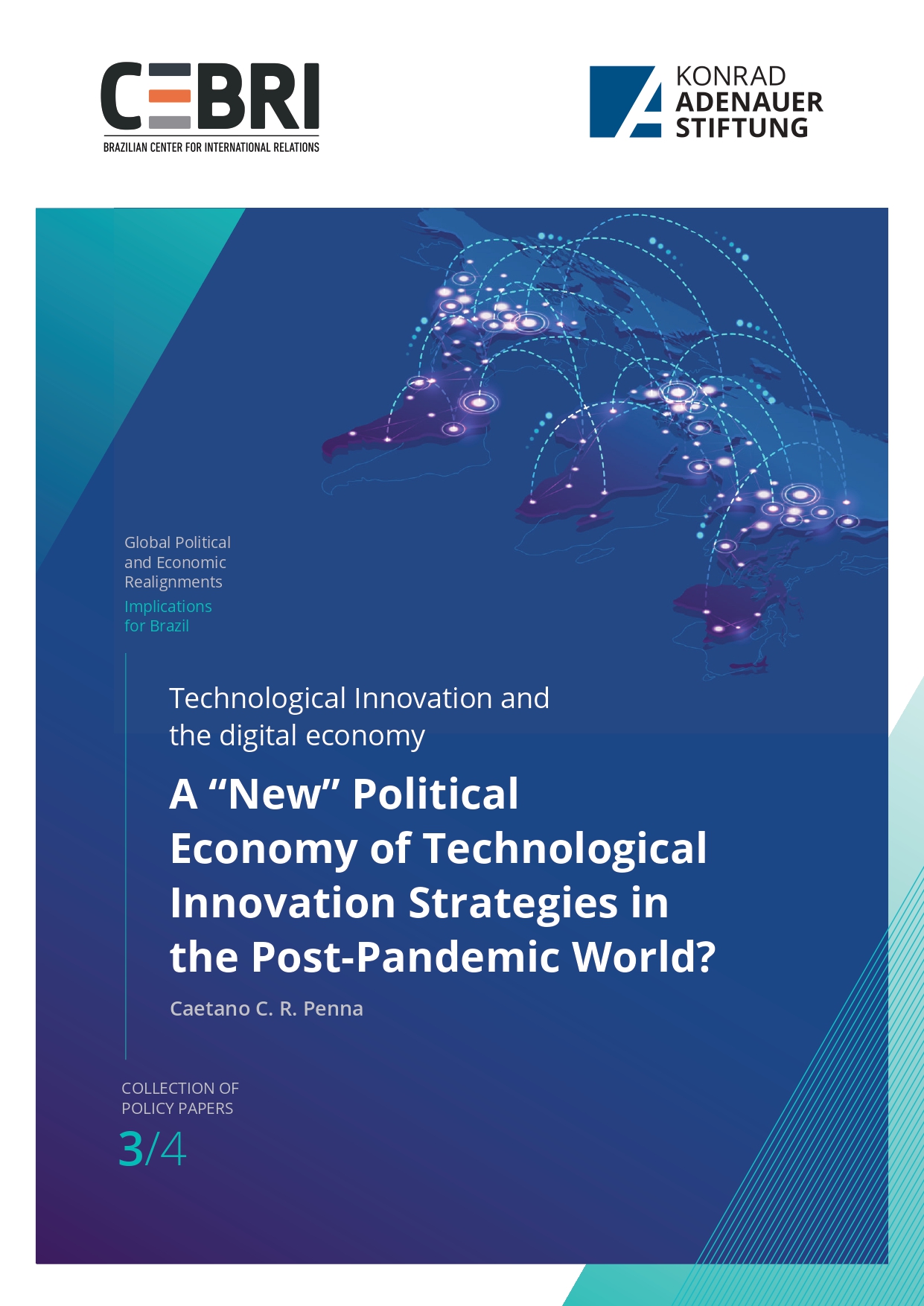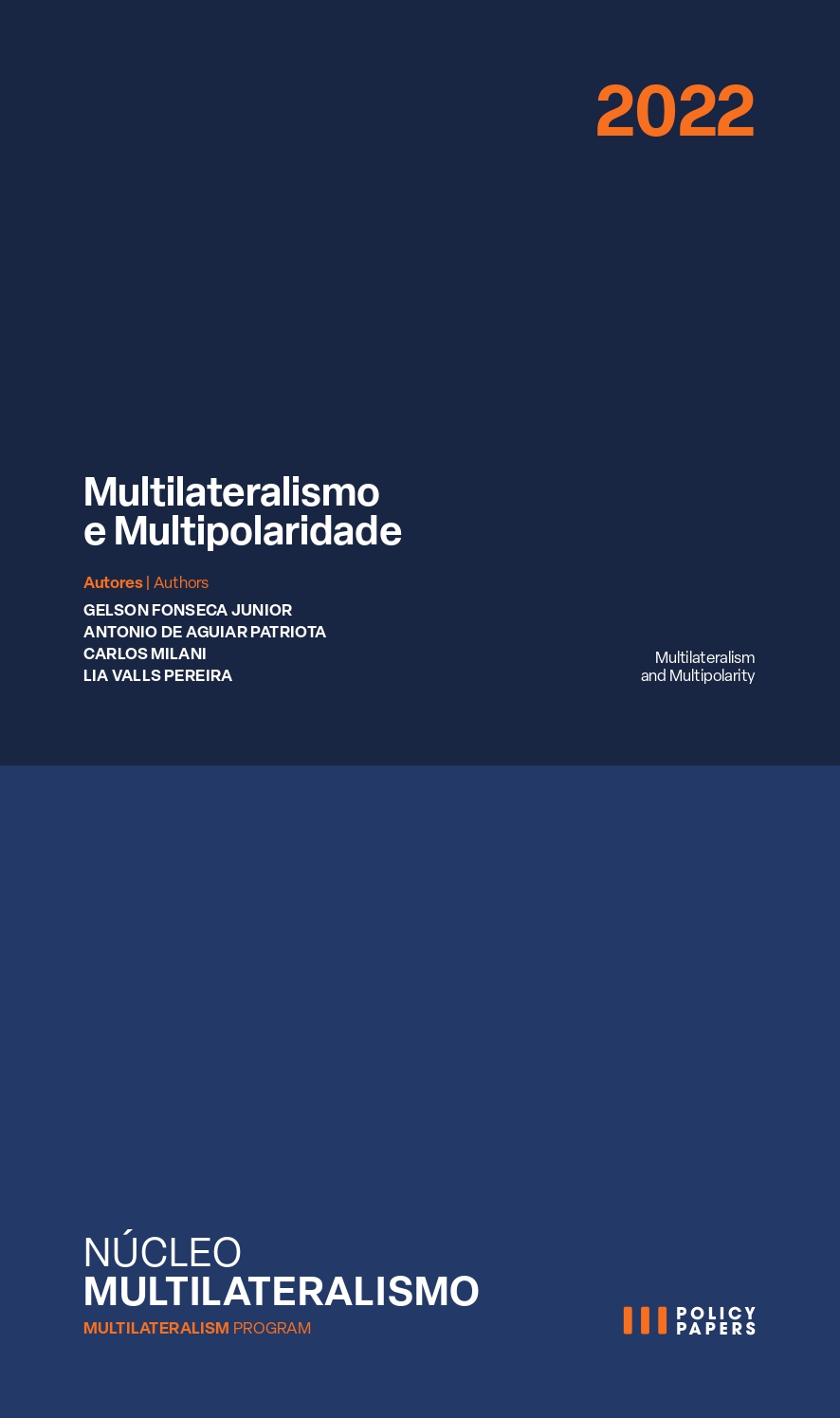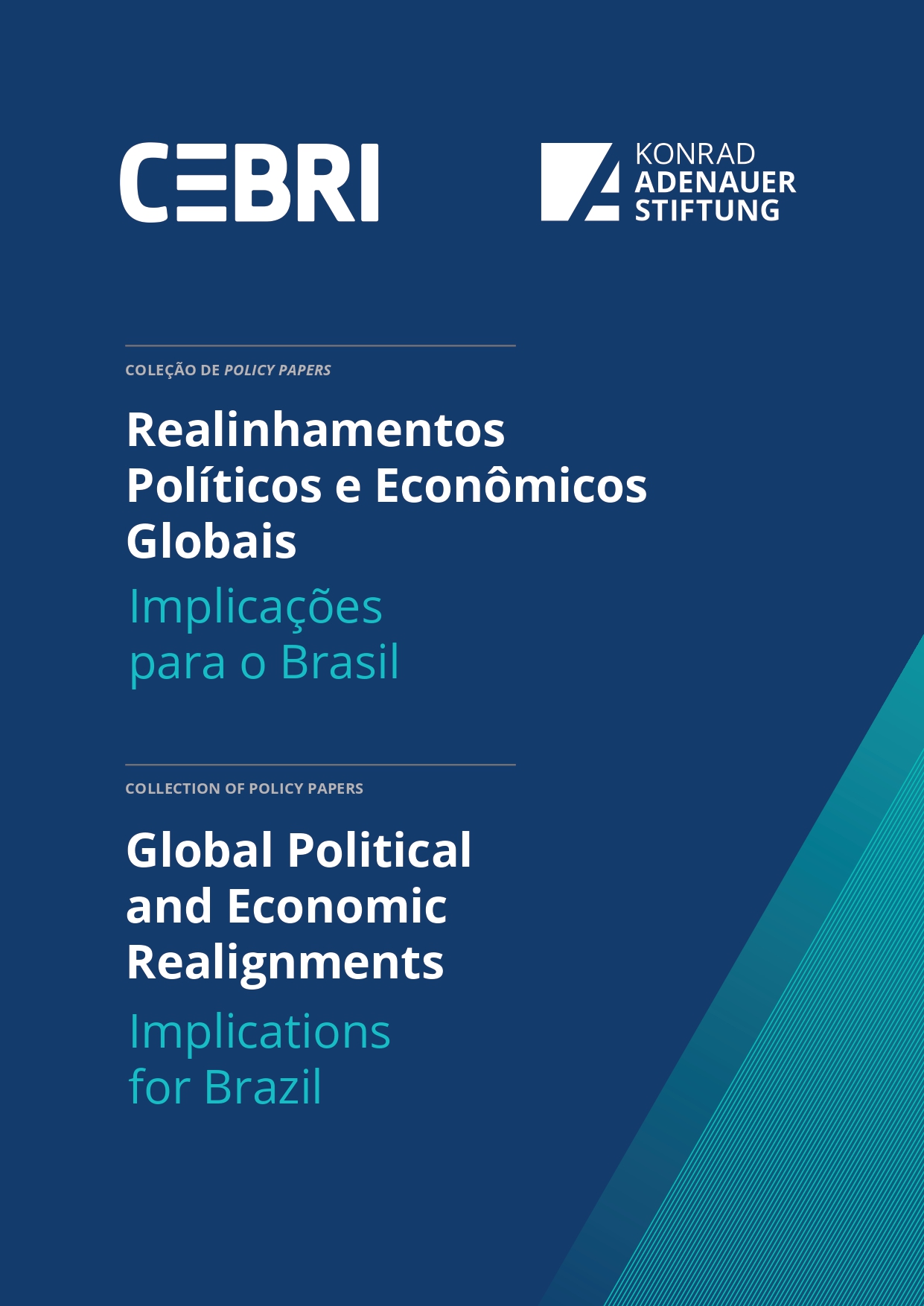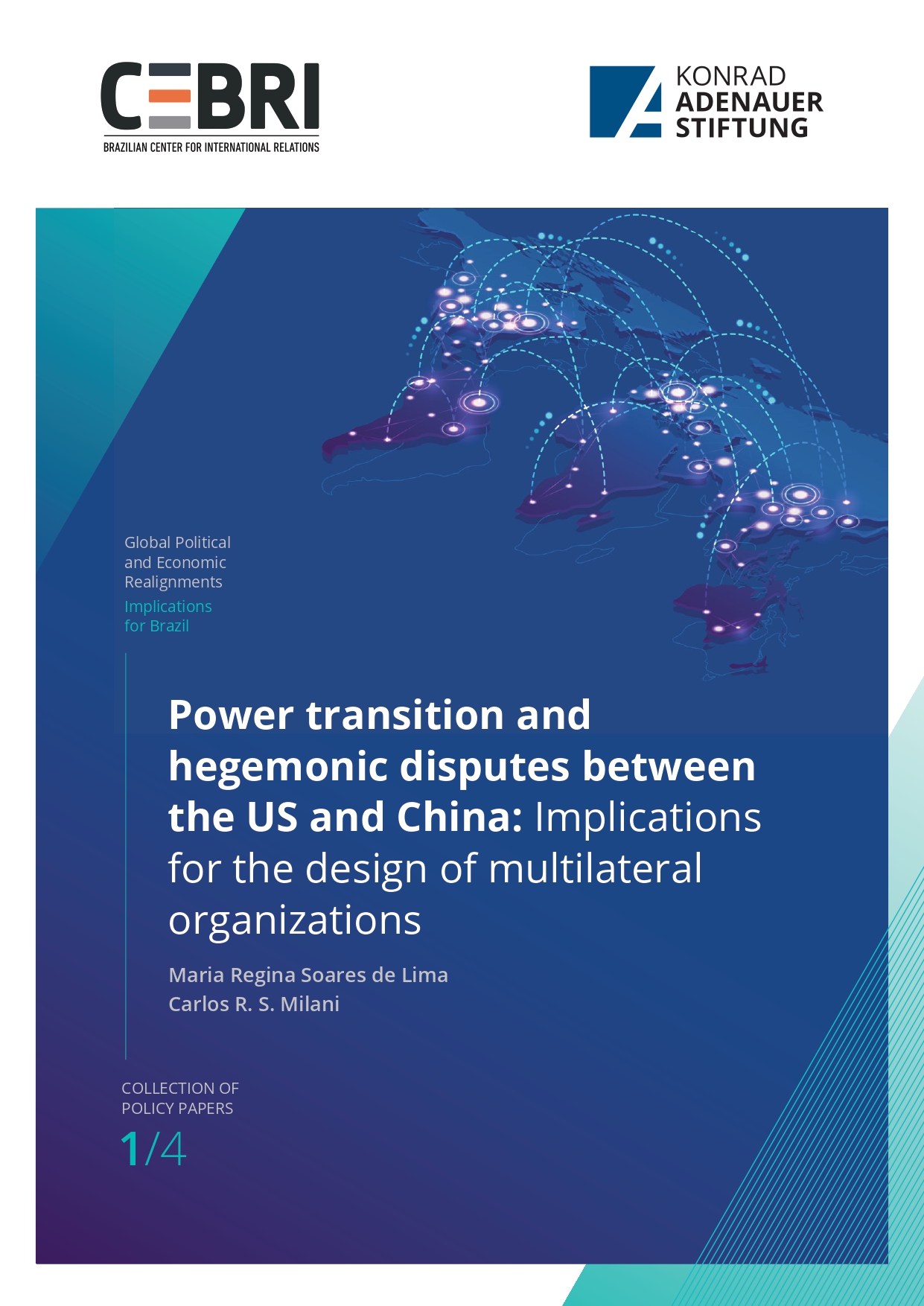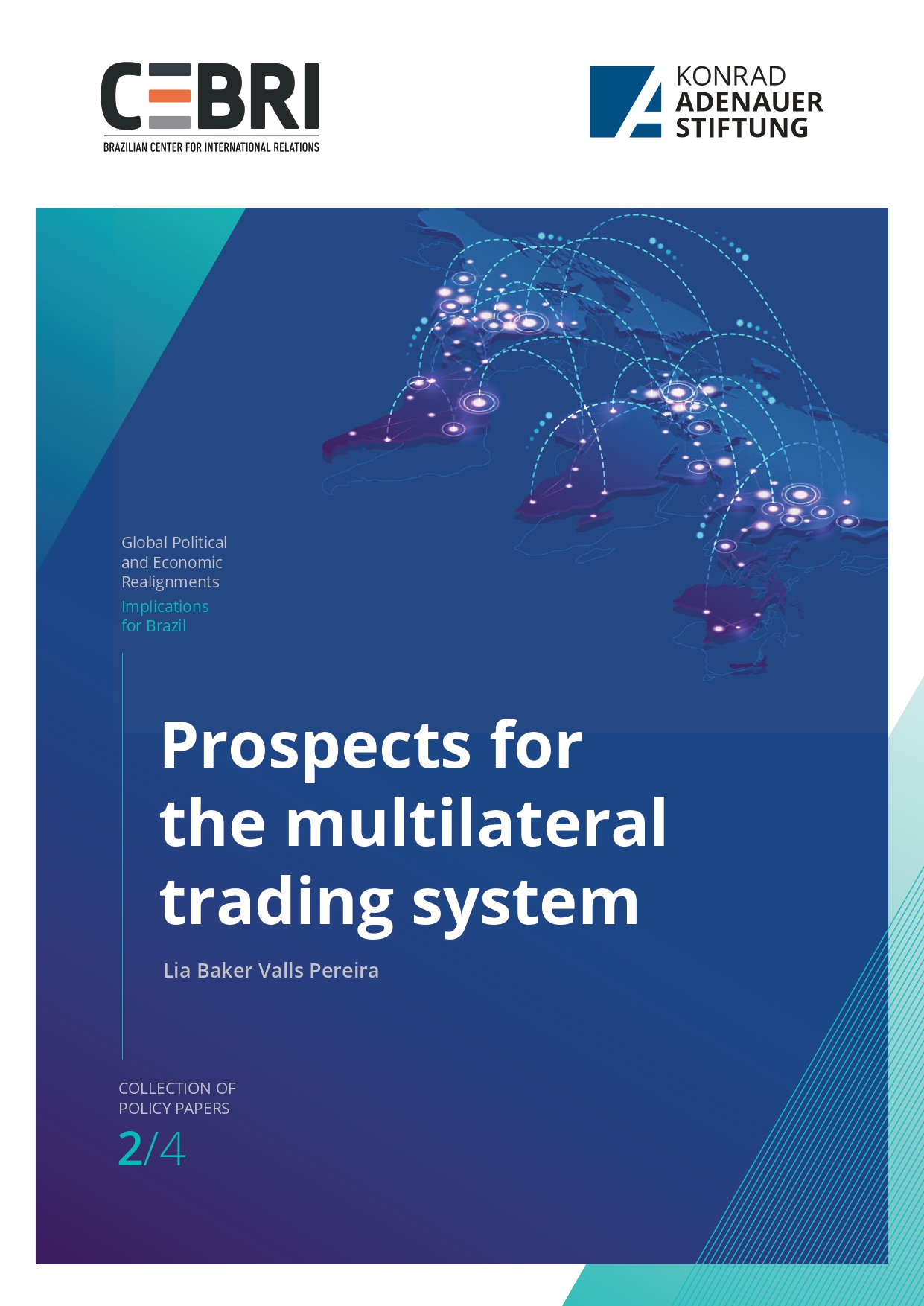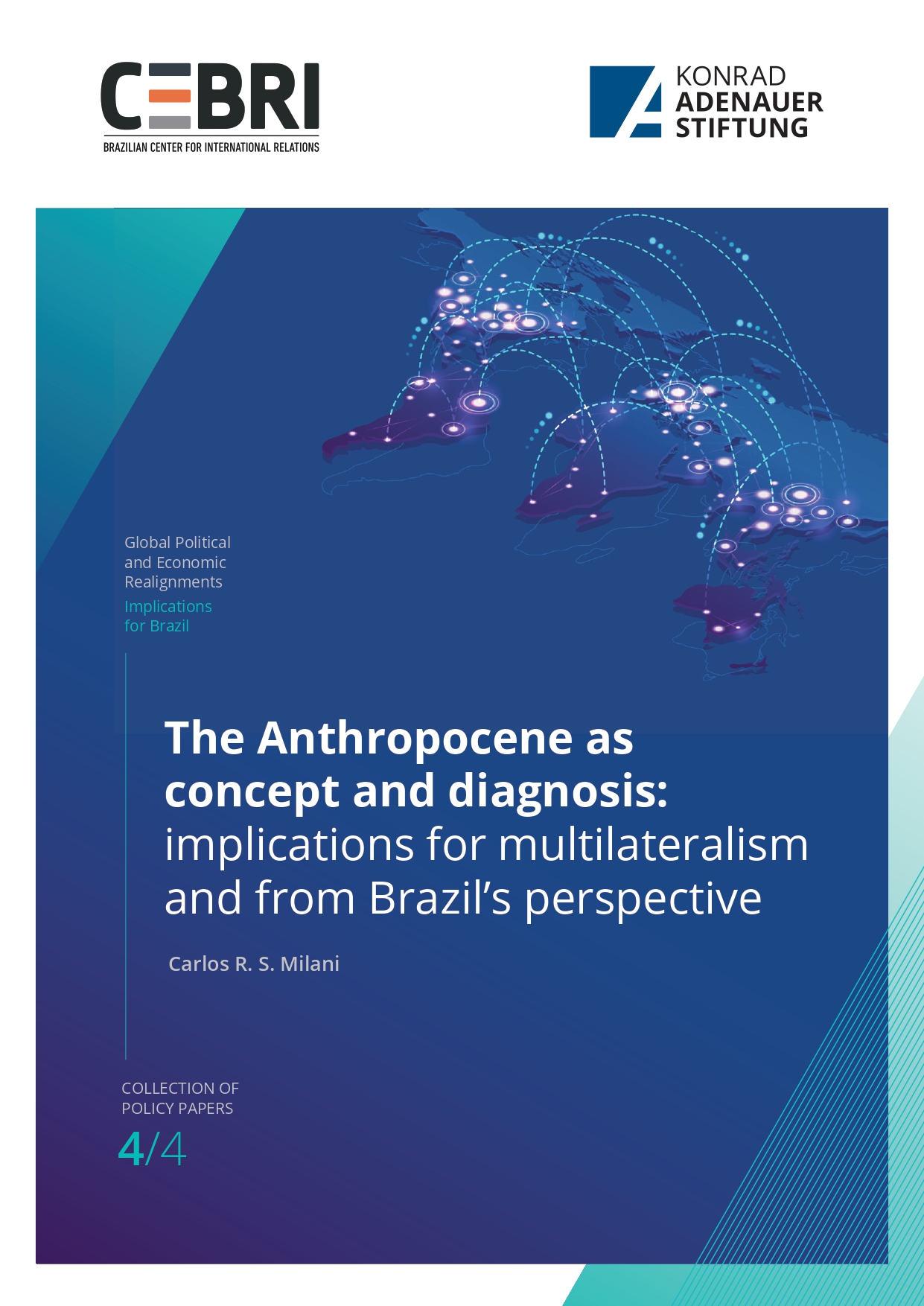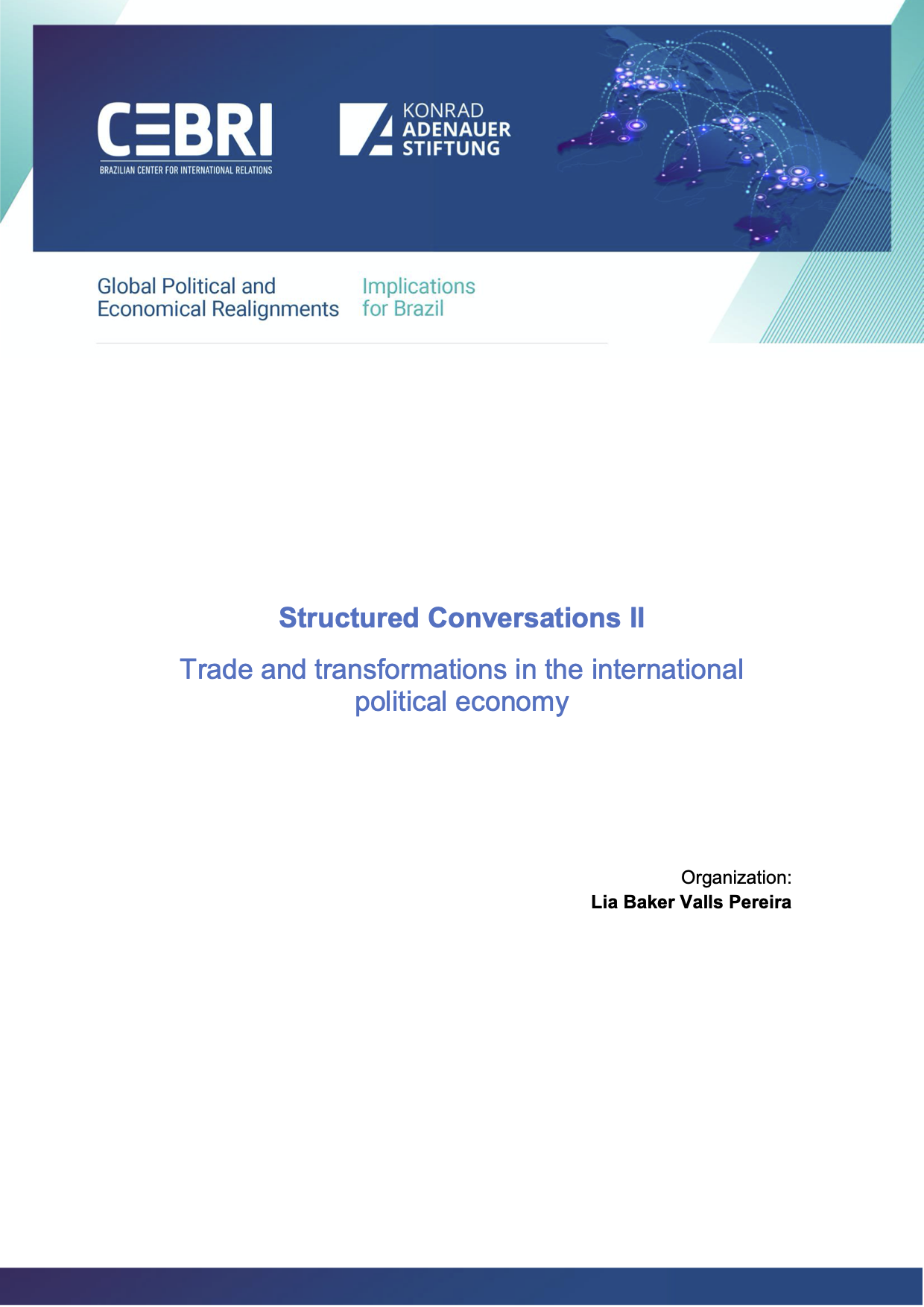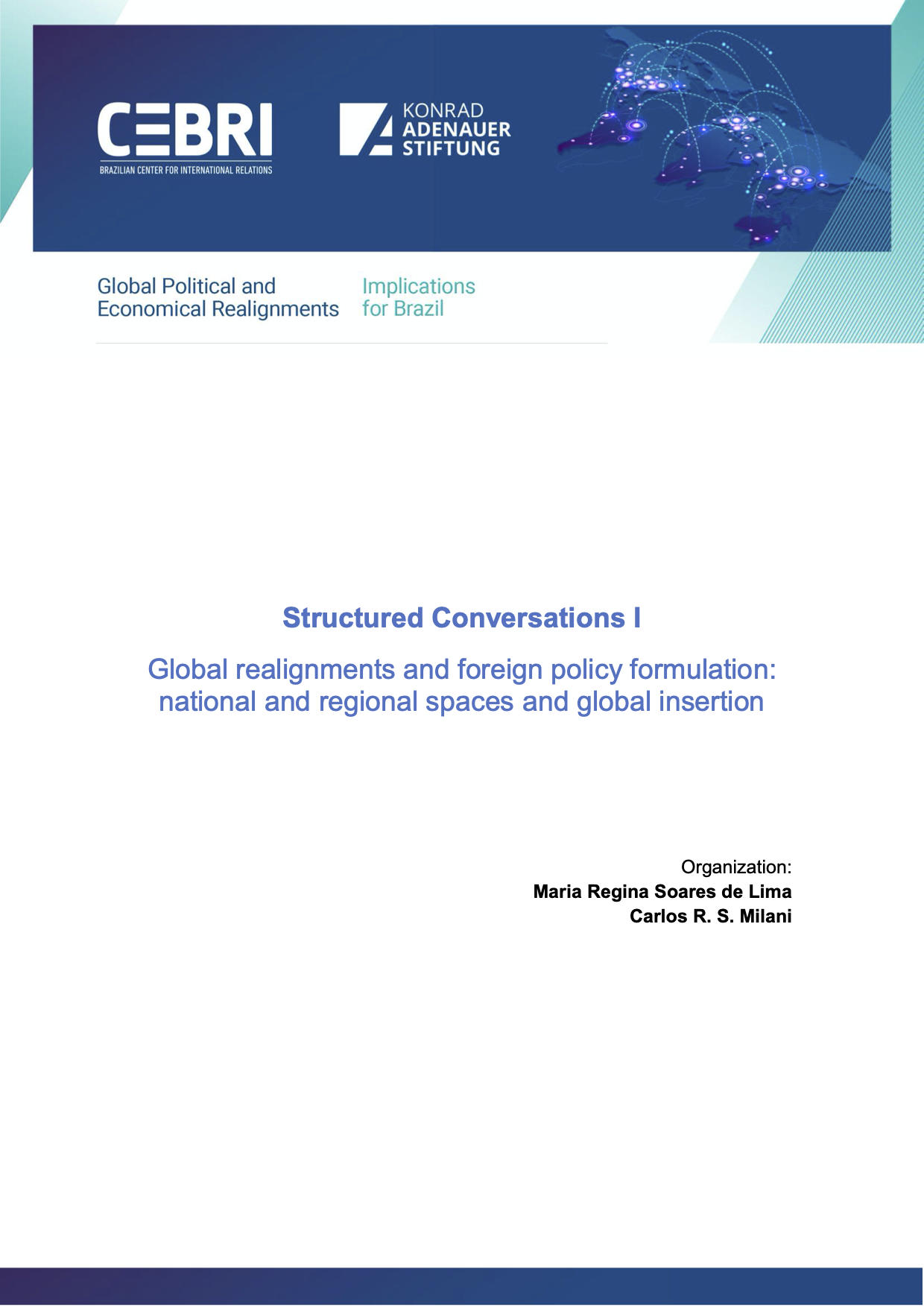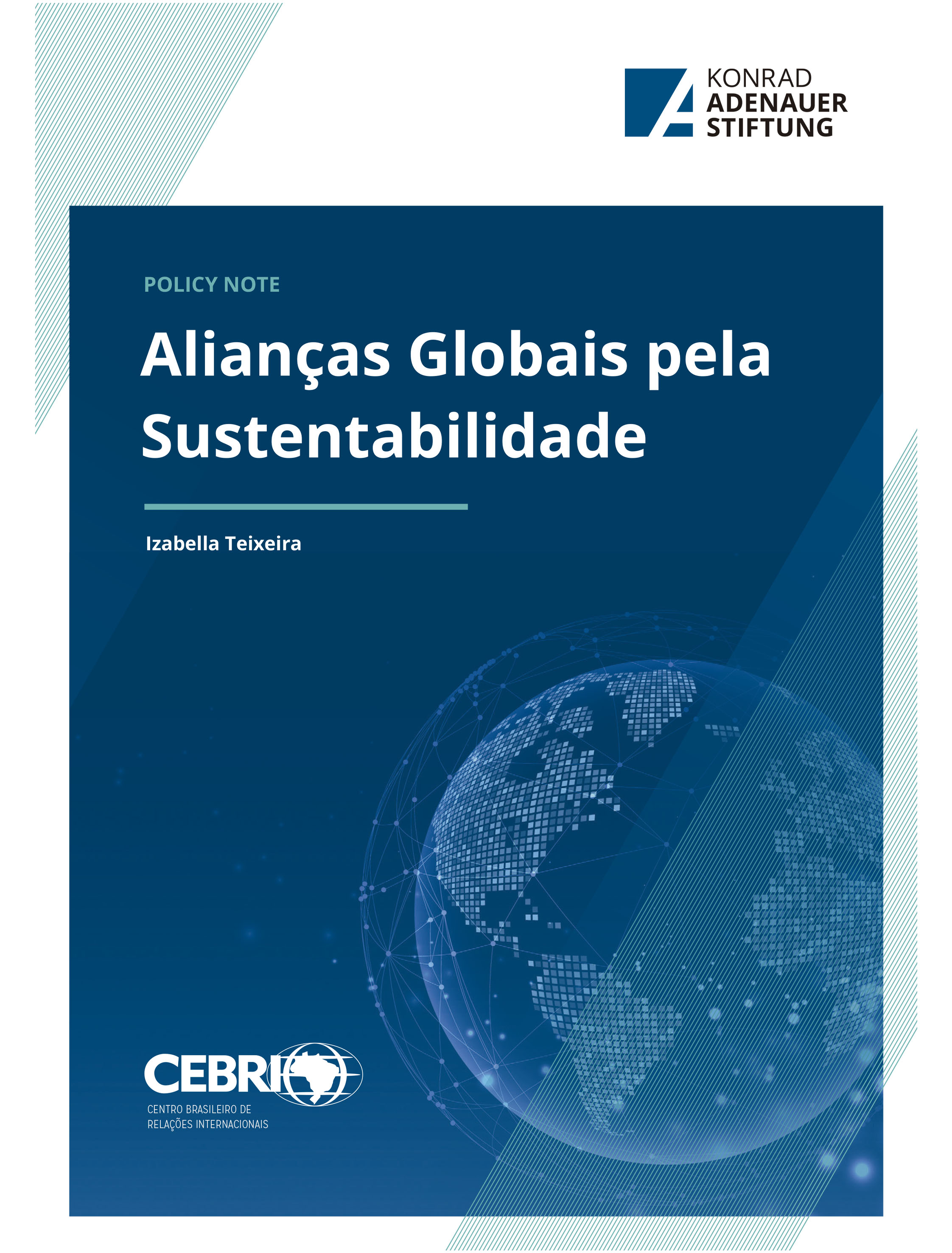Policy Papers
Technological Innovation and the digital economy: A “New” Political Economy of Technological Innovation Strategies in the Post-Pandemic World?
- Multilateralism
- 12 april 2022
This is the third of four policy papers of the project “Global Political and Economic Realignments: Implications for Brazil” by CEBRI, in partnership with KAS. Based on the reflections made in his previous Policy Paper “Geopolitics and Economics of Innovation”, Caetano Penna analyses the “new” political economy of innovation strategies in the post-pandemic world. The author argues, based on Polanyi's notion of “double movement”, that contradictory forces govern capitalist development in a constant dialectical process. The text presents examples of recent developments that highlight the four geopolitical and techno-economic trends identified in the previous policy paper, and explains the political economy of national technological strategies based on the works of Polanyi (1994), Fiori (2004; 2010) and Taylor (2016). Finally, reflections on the implications for Brazil and emerging economies are made.
This is the third of four policy papers of the project “Global Political and Economic Realignments: Implications for Brazil” by CEBRI, in partnership with KAS. Based on the reflections made in his previous Policy Paper “Geopolitics and Economics of Innovation”, Caetano Penna analyses the “new” political economy of innovation strategies in the post-pandemic world. The author argues, based on Polanyi's notion of “double movement”, that contradictory forces govern capitalist development in a constant dialectical process. The text presents examples of recent developments that highlight the four geopolitical and techno-economic trends identified in the previous policy paper, and explains the political economy of national technological strategies based on the works of Polanyi (1994), Fiori (2004; 2010) and Taylor (2016). Finally, reflections on the implications for Brazil and emerging economies are made.
